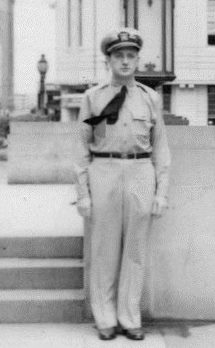I am succumbing to temptation to repeat a post from 4 years ago. The reason is that the problem is now far worse. We do not have just a Principle agent problem, the country is run by corporate renegades and those on foreign payrolls.
The principalagent problem, in political science and economics, (also known as agency dilemma or the agency problem) occurs when one person or entity (the “agent”) is able to make decisions on behalf of, or that impact, another person or entity: the “principal”.[1] This dilemma exists in circumstances where agents are motivated to act in their own best interests, which are contrary to those of their principals, and is an example of moral hazard.
The Founders were well aware of this problem and tried to protect the citizens with certain provisions of the Constitution.
“No Money shall be drawn from the Treasury, but in Consequence of Appropriations made by Law; and a regular Statement and Account of the Receipts and Expenditures of all public Money shall be published from time to time.”
This provision was violated by Barack Obama who spent billions to subsidize insurance companies to support his “Affordable Care Act” which was not successful.
Of course, the Amendments were intended to protect the rights of the people but the one that has been ignored for 100 years is the Tenth.
“The powers not delegated to the United States by the Constitution, nor prohibited by it to the States, are reserved to the States respectively, or to the people.”
The Civil War largely ended Federalism.
In recent years, political parties have mislead their voters, the worst offender being the Republican Party. The Democrats posture as the party of the working man but it has become a party with two wings, the rich who want social liberties, and the poor who want to be taken care of. Jay Cost has written a good book about the Democrats Party called, “Spoiled Rotten, which explains the current policies of the party that has adopted “Identity politics” in which race and victim status has become a principal focus. My own review of the book is here.
The Republicans have gradually become the party of small business but the interests of small business are not being considered as paramount as the party seems to be evolving into another party of professional politicians whose personal interest trumps (so to speak) the interests of the voters. The result has been the rebellion of the Tea Party and more recently the election of Dave Brat, an economics professor, to Congress defeating Eric Cantor, a member of the GOP leadership, in 2014.
The election of Donald Trump has presented the GOP Congress with a crisis to which many have responded by retiring. One wonders what the next step of their career will be. Few, I suspect, will return home to the district that elected them. Most will remain in DC as Cantor has done.
Immediately thereafter, Cantor accepted a position as vice chairman of investment bank Moelis & Company. and,
In February 2015, the firm opened its Washington DC office, following the hire of Eric Cantor, former House Majority Leader, in September 2014.
That was bad enough in 2017 but we now have President Ron Klain, elected by no one, with Joe Biden as a prop when he can read his cue cards.
I think Angelo Codevilla’s piece about “The Ruling Class” has the best explanation.
When this majority discovered that virtually no one in a position of power in either party or with a national voice would take their objections seriously, that decisions about their money were being made in bipartisan backroom deals with interested parties, and that the laws on these matters were being voted by people who had not read them, the term “political class” came into use. Then, after those in power changed their plans from buying toxic assets to buying up equity in banks and major industries but refused to explain why, when they reasserted their right to decide ad hoc on these and so many other matters, supposing them to be beyond the general public’s understanding, the American people started referring to those in and around government as the “ruling class.” And in fact Republican and Democratic office holders and their retinues show a similar presumption to dominate and fewer differences in tastes, habits, opinions, and sources of income among one another than between both and the rest of the country. They think, look, and act as a class.
Now, we have a ruling class whose loyalty seems to be to other governments, China, Russia, The EU ? Who are they working for? Biden attacks BREXIT, Supporting the EU over the UK, infuriating the British ruling party. Labour has already ridiculed Biden for his dementia. Who is writing Biden’s speeches ?
